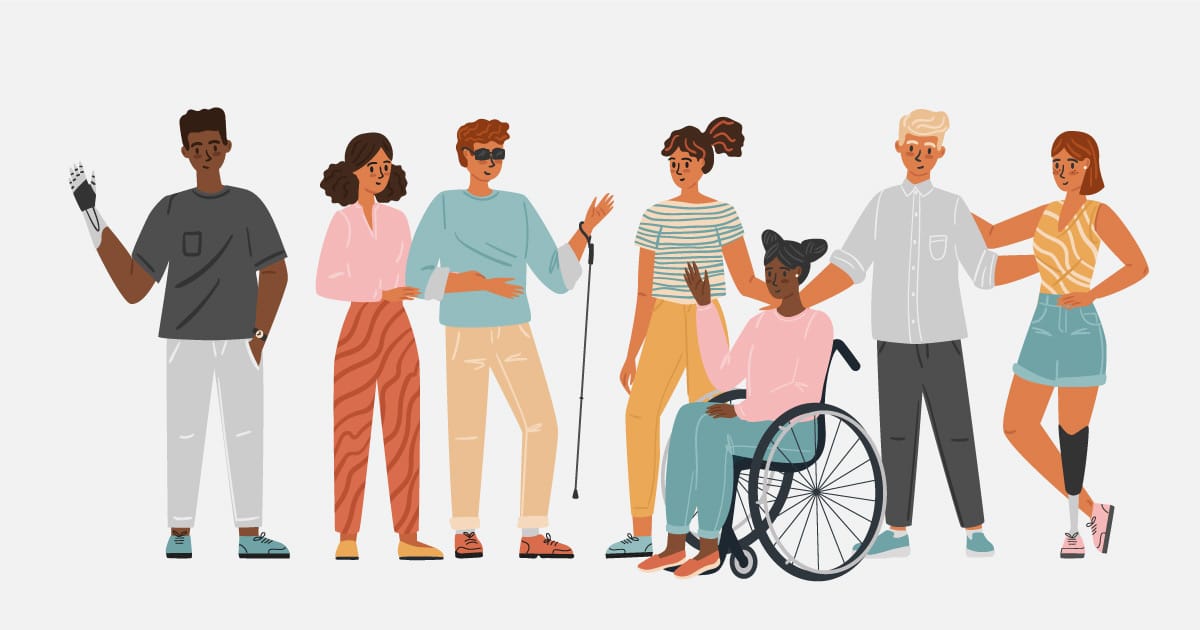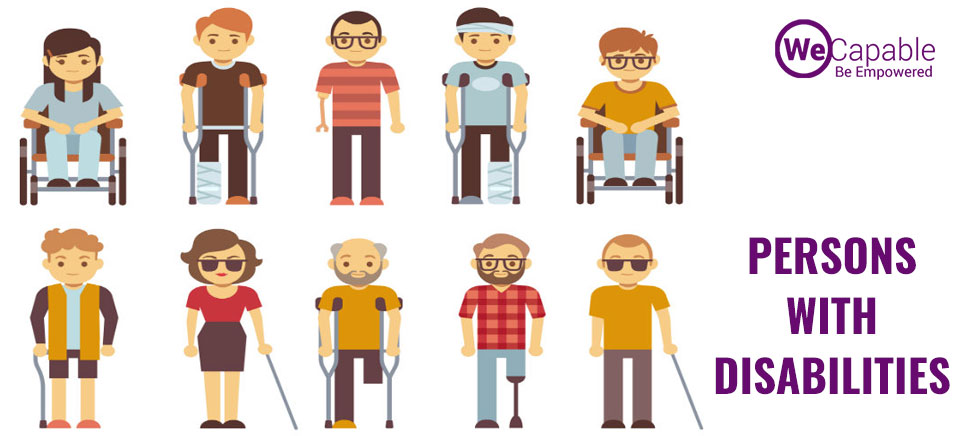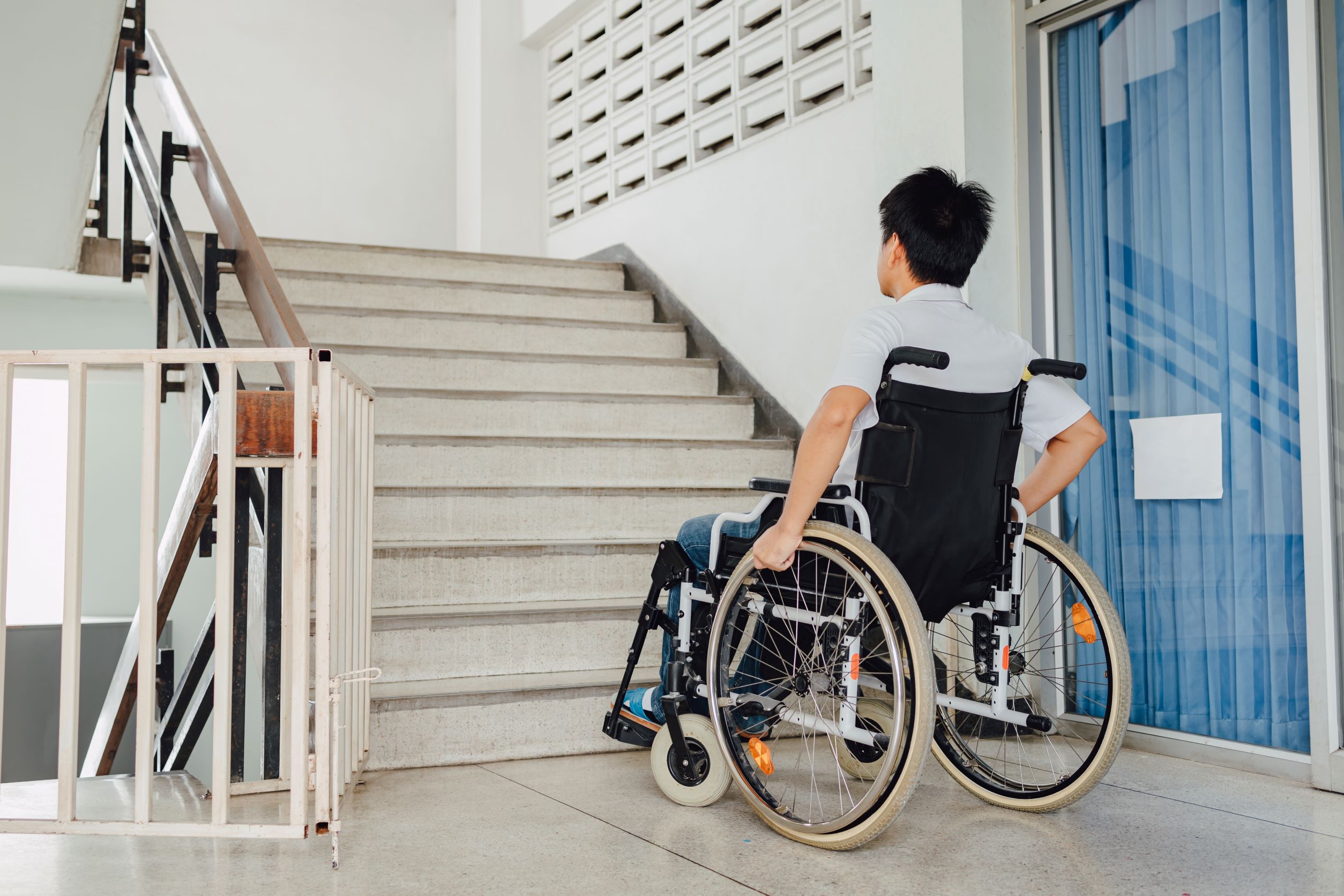Unpacking Thomas Edison's Hearing: What Disability Did Edison Have?
Have you ever stopped to ponder the human stories behind the great minds of history? It's a bit like peeling back layers, you know, to really get a sense of what made them tick. When we think about Thomas Edison, the name usually brings up images of light bulbs and phonographs, amazing inventions that changed how we live. But there's another part of his personal story that often gets people wondering, and that is about his health.
Many folks, you see, have heard whispers or perhaps read something about Edison having a hearing condition. It leads to a pretty common question: what disability did Edison have? It's a fair thing to ask, considering how much he did despite his physical challenges. People are naturally curious about how someone could achieve so much while facing such a hurdle, and that's a good thing, really.
Today, as of late 2023, understanding personal challenges, like those faced by historical figures, helps us think about abilities and support systems in our own time. It's interesting to consider, in a way, how we define a "disability" now compared to how it might have been seen back then. We'll explore what was going on with Edison's hearing and how that might have shaped his world, and then we'll look at how modern ideas about disability, like those discussed by Social Security or the World Health Organization, might apply to his situation.
Table of Contents
- Thomas Edison: A Brief Look at His Life
- The Question of Edison's Hearing
- Beyond Hearing: Other Health Aspects
- Disability Through a Modern Lens
- The Human Spirit and Innovation
- Frequently Asked Questions About Edison's Hearing
Thomas Edison: A Brief Look at His Life
Thomas Alva Edison, born way back in 1847 in Milan, Ohio, was, you know, a pretty remarkable person. He was, as a matter of fact, one of the most prolific inventors in history. He had, it seems, a knack for figuring things out and making them work better. His creations, like the practical electric light bulb, the phonograph, and the motion picture camera, truly changed daily life for countless people across the globe. He got a lot of patents, hundreds of them, which just goes to show how much he worked on new ideas.
His early life was, in some respects, a bit unusual. He had a short time in formal schooling, but his mother, Nancy Elliott Edison, taught him quite a lot at home. This kind of education, you could say, really helped him develop a love for reading and learning on his own. He was, apparently, always tinkering and experimenting, even as a young boy. This early passion for discovery, you know, really set the stage for his later achievements. He was, quite frankly, a person who just loved to build and invent things.
Here's a quick look at some personal details about Thomas Edison:
| Detail | Information |
|---|---|
| Full Name | Thomas Alva Edison |
| Born | February 11, 1847 |
| Birthplace | Milan, Ohio, United States |
| Died | October 18, 1931 (aged 84) |
| Place of Death | West Orange, New Jersey, United States |
| Spouses | Mary Stilwell (m. 1871; d. 1884), Mina Miller (m. 1886) |
| Children | Six (three with each wife) |
| Known For | Inventor, businessman; phonograph, practical electric light bulb, motion picture camera |
The Question of Edison's Hearing
So, the big question, what disability did Edison have? Well, the most widely known and discussed health condition he faced was a significant loss of hearing. This wasn't something that just happened overnight, you know, but something that developed over time, starting when he was a child. It was, apparently, a pretty big part of his life experience. People often wonder how someone with such a challenge could be so productive, and that's a good point to consider, actually.
Early Life and the Onset of Hearing Changes
Edison's hearing troubles began, it seems, when he was just a boy. There are a few different stories about how it started, and they've been passed down over the years. One popular story suggests he suffered from scarlet fever when he was young, and this illness might have caused damage to his ears. Another story, which Edison himself sometimes told, involved an incident on a train. He claimed a train conductor lifted him by his ears to help him onto a moving train, causing some kind of injury. This tale, you know, might have been a bit exaggerated, but it points to an early onset of his hearing difficulties.
Regardless of the exact cause, his hearing loss was, in fact, progressive. It got worse as he got older. By the time he was an adult, he was, for all intents and purposes, quite deaf in one ear and had very limited hearing in the other. This meant that conversations were, you know, often very hard for him to follow, and he relied a lot on reading lips and, sometimes, shouting. It was, arguably, a constant presence in his daily existence.
Theories and Ideas About the Cause
There are, you know, several ideas about what caused Edison's profound hearing loss. As mentioned, scarlet fever is often cited as a likely culprit, as it can, in some cases, lead to ear damage. Another possibility is that he suffered from repeated ear infections during childhood, which could have also taken a toll on his hearing. Some historians, as a matter of fact, also point to an injury from a childhood accident, perhaps the train incident he spoke of, or maybe something else entirely. It's hard to say for sure, really, what the exact cause was so many years later.
What we do know is that his hearing was, you know, significantly impaired. He sometimes used an ear trumpet, a device that helped amplify sounds, but even that had its limits. The specific medical diagnosis from his time is not something we have, of course, in modern terms. But it's pretty clear he had a substantial, permanent hearing loss that affected his ability to perceive sound, especially speech. This kind of persistent challenge, you know, makes his achievements even more remarkable.
How His Hearing Affected His World
Edison's hearing loss had, in some respects, a profound impact on his life and work. It's tempting to think of it only as a limitation, but for Edison, it was, arguably, also a source of unique strengths. For one thing, it meant he often worked in quiet environments, which allowed him to focus intensely on his experiments without much outside distraction. He could, you know, really concentrate on the subtle sounds of his machines, or the quiet hum of electricity, in a way others might not have been able to.
He often used his teeth to feel vibrations from his phonographs, which allowed him to "hear" the sounds in a different way. This kind of adaptation, you know, shows a lot about his inventive spirit. His hearing loss also made him, apparently, a more visual person, relying on reading and observation. It shaped his social interactions too; he sometimes avoided large gatherings where conversation was hard. So, it was, in a way, a part of who he was, and it influenced how he moved through the world and how he pursued his many inventions.
Beyond Hearing: Other Health Aspects
While his hearing loss is the most recognized health condition, it's worth considering if there were other aspects of Edison's health that might have played a role in his life. Historical records, you know, don't point to any other major, long-term physical disabilities that significantly impacted his work or daily living in the same way his hearing loss did. He lived to be 84, which was, of course, a pretty good age for someone born in the 19th century. He was, as a matter of fact, known for his incredible work ethic and long hours, which suggests he had a good amount of physical stamina for much of his life.
Like anyone, he would have experienced the usual health issues that come with age, but nothing, it seems, stood out as a major chronic condition beyond his hearing. His focus was, you know, almost entirely on his work, and stories about his health mostly revolve around his hearing. So, while we focus on "what disability did Edison have?", it's clear his hearing was the primary, very significant, physical challenge he faced throughout his adult years.
Disability Through a Modern Lens
When we ask "what disability did Edison have?", it's useful to think about how we define "disability" today. Our understanding has, you know, changed quite a lot over time. It's not just about a medical condition anymore; it's also about how that condition interacts with a person's surroundings and daily life. This perspective helps us appreciate the challenges Edison faced, and also how he adapted, in a way, to his circumstances.
Defining Disability Today
Today, the idea of disability is, you know, much more nuanced. As "My text" explains, "Disability results from the interaction between individuals with a health condition, such as cerebral palsy, down syndrome and depression, with personal and environmental factors." This means it's not just the condition itself, but also how the world around a person is set up, or not set up, to support them. For example, a person using a wheelchair faces a "disability" when there are no ramps, not necessarily just because they use a wheelchair. Similarly, "Disability refers to the interaction between individuals with a health condition, such as cerebral palsy, cognitive impairment or depression, and personal and environmental factors." This broader view, you know, helps us understand the full picture.
Organizations like the World Health Organization (WHO) are, you know, very much focused on this. "The WHO Disability Health Equity Initiative aims to close the avoidable health gaps between persons with disabilities and the broader population." This shows a global effort to make things more fair. "Persons with disabilities have the right to the highest attainable" health, which is, you know, a very important principle. The global estimate for disability, as "My text" points out, "is on the rise due to population ageing and the rapid spread of chronic diseases, as well as improvements in the methodologies used to measure." This means more people are living with various conditions, and we're getting better at counting them, too it's almost a reflection of longer lifespans.
Social Security in the United States, for instance, has its own definitions, which are, you know, often tied to a person's ability to work. "Social Security Disability Insurance (SSDI) or 'disability' provides monthly payments to people who have a disability that stops or limits their ability to work." And, "You may be eligible for disability if your condition affects your ability to work, or will result in death." They also consider things like income and resources for Supplemental Security Income (SSI), as "My text" notes: "Supplemental Security Income for disability you're blind or have a disability, and it's hard to pay for essentials like food, clothing, and a home." So, the definition can, in fact, depend on the context and purpose, which is pretty interesting.
Edison's Condition and Modern Understanding
So, if we apply these modern definitions to Edison, his hearing loss would, you know, certainly qualify as a health condition. The "disability" part would come from how his severe hearing impairment interacted with his environment. In his time, there were very few accommodations for people with hearing loss. No sign language interpreters were readily available, no hearing aids like we have today, and certainly no widespread understanding of how to communicate effectively with someone who couldn't hear well. So, his environment, you know, presented significant barriers, which would, in fact, make his hearing loss a disability by today's standards.
He was, for example, often misunderstood or seen as aloof because of his difficulty in conversation. This was, in a way, a direct result of the lack of support and understanding around him. His personal factors, like his strong will and inventive mind, allowed him to overcome many of these environmental barriers through sheer determination and clever adaptations. But the condition itself, you know, was a constant challenge. It's a bit like saying he had to invent his own ways of coping with a world that wasn't designed for him, which he did, in fact, quite successfully.
Impact on Work and Life
Edison's hearing loss clearly affected his ability to work in certain ways, but it also, arguably, shaped his unique approach to innovation. He couldn't easily participate in large meetings or use the telephone effectively. These were, in some respects, limitations. However, his labs were, you know, often quiet places, allowing him to focus deeply on his experiments without the distraction of sound. This quiet environment, you could say, became an advantage for him. He was, apparently, able to concentrate for long periods, which is a pretty valuable trait for an inventor.
From the perspective of "My text" regarding Social Security, his condition did not "stop or limit his ability to work" in a way that prevented him from being incredibly productive. Quite the opposite, in fact. He found ways to work around his hearing loss, even using it to his advantage. He didn't, for example, need monthly payments because his condition didn't prevent him from having a prolific career. This highlights how individual responses to health conditions can, you know, vary so much. His story is, in a way, a powerful example of human adaptability and ingenuity when faced with a physical challenge.
The Human Spirit and Innovation
Thomas Edison's story, you know, really shows us a lot about the human spirit. Despite his profound hearing loss, he didn't let it define his capabilities. He used his challenges, in a way, to his advantage, finding unique methods for experimenting and focusing. His ability to adapt, to find different ways of perceiving the world, and to keep pushing forward with his ideas is, frankly, pretty inspiring. It's a testament to how people can, you know, overcome significant hurdles and still achieve truly amazing things.
His life reminds us that innovation doesn't always come from a perfect set of circumstances. Sometimes, it emerges from having to think differently, to find new solutions to problems, even personal ones. He was, in fact, a person who just kept trying, which is a very important lesson for anyone. So, when we think about what disability did Edison have, it's not just about the medical condition, but also about the incredible resilience and ingenuity he showed throughout his life. It’s a story that, you know, continues to resonate today, reminding us of the vast potential within each person, regardless of their physical circumstances. To learn more about disability and innovation on our site, you might find some interesting connections. And if you're curious about how modern support systems work, you can link to this page for details on Social Security disability benefits.
Frequently Asked Questions About Edison's Hearing
Here are some common questions people ask about Thomas Edison's hearing:
1. How did Thomas Edison lose his hearing?
Thomas Edison's hearing loss began in childhood. The exact cause is, you know, a bit unclear, but popular theories suggest it was due to a severe case of scarlet fever, repeated ear infections, or possibly an injury sustained during a childhood incident, like being pulled onto a moving train by his ears. It was, in fact, a progressive condition that worsened over time.
2. Did Edison's hearing loss affect his inventions?
His hearing loss did, you know, certainly influence his work, but not always in a negative way. While it made communication difficult, it also allowed him to work in relative quiet, helping him focus intensely on his experiments without distraction. He also, apparently, developed unique ways to "feel" vibrations from his inventions, like the phonograph, which helped him understand their workings. So, it was, in a way, a mixed bag of challenges and unexpected advantages.
3. Was Thomas Edison completely deaf?
By adulthood, Thomas Edison was, you know, profoundly deaf in one ear and had very limited hearing in the other. While not completely without hearing, his impairment was severe enough that he relied heavily on lip-reading and, sometimes, shouting to communicate. He was, in essence, functionally deaf for most practical purposes, especially when it came to understanding spoken conversation.

Tiffany Yu: How To Build a More Disability-Inclusive Culture

Persons with Disabilities: Definition, Rights, States and More

Common Barriers for Individuals with Disabilities in Public | TekWay